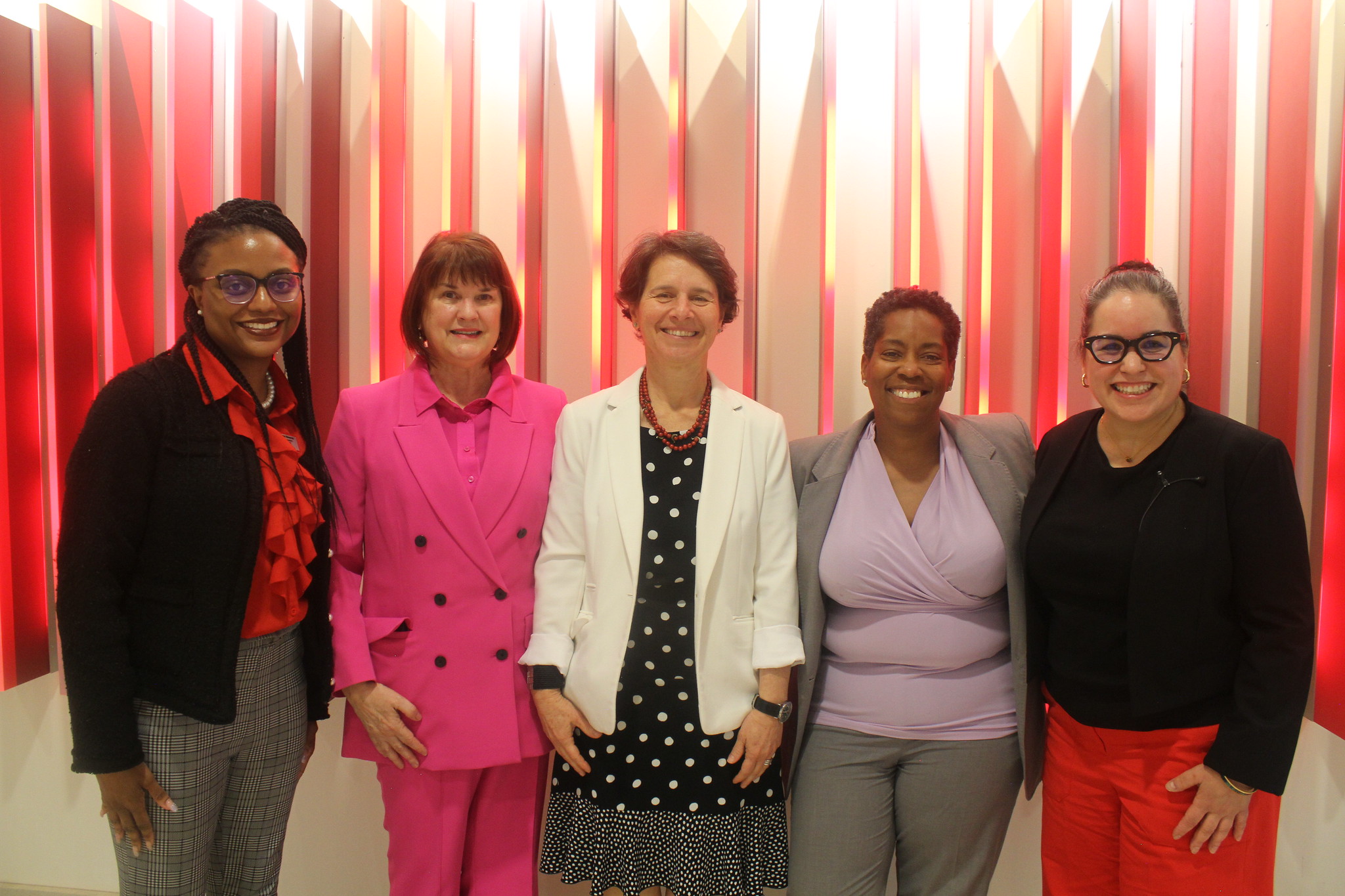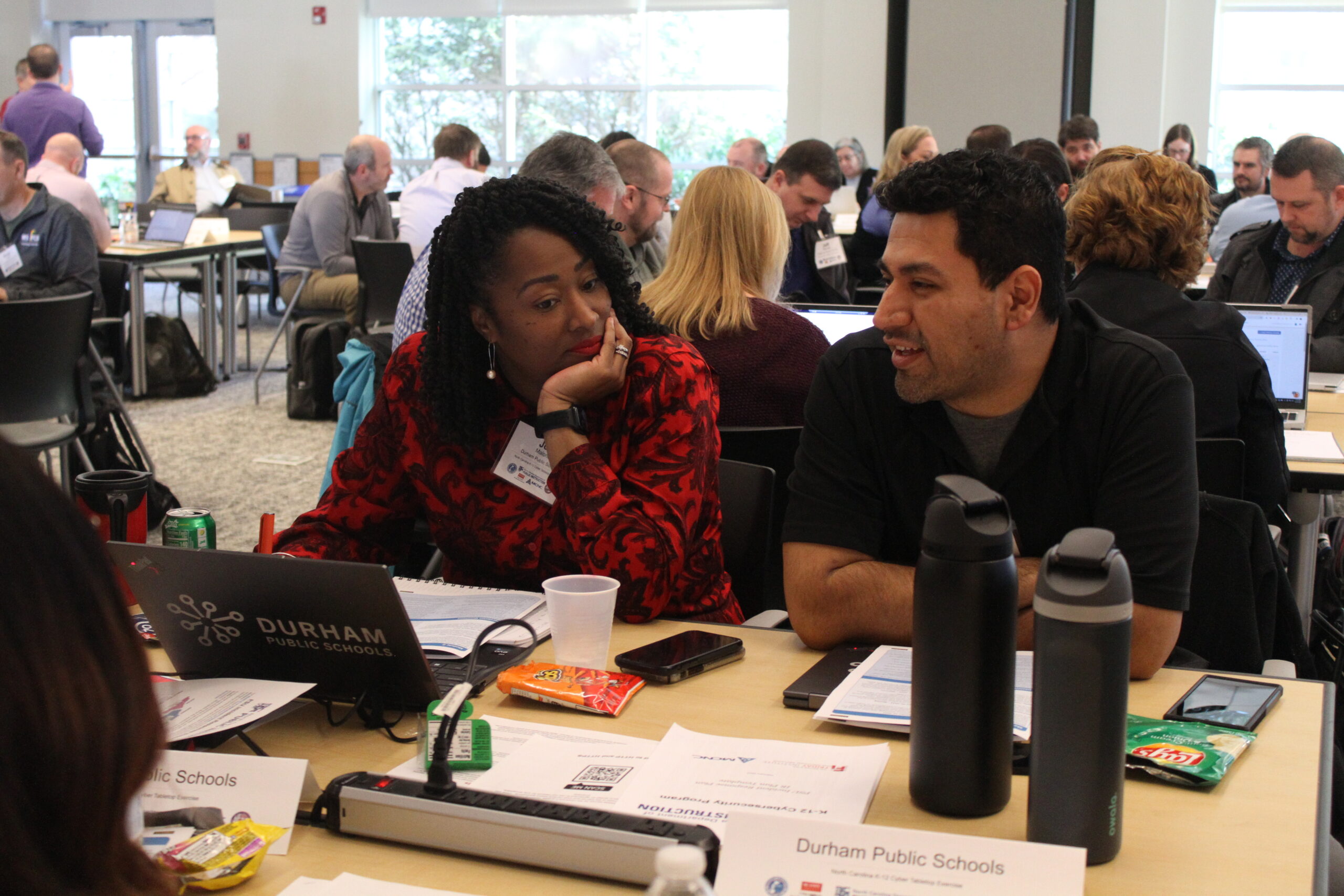Friday Institute Hosts National Thought-Leaders on Technology-Enabled Personalized Learning
February 21, 2014 – Over 100 education, corporate, research, and nonprofit leaders came together at the National Technology-Enabled Personalized Learning Summit (TEPLS) at the Friday Institute for Educational Innovation at NC State University from Feb. 11-13. Described as a working meeting, the experts and leaders compared experiences, identified common barriers and solutions, and coordinated future efforts around student academic success and technology.
“Technology is an enabler and equalizer that creates unique opportunities for personalized learning, and this Summit has been instrumental in advancing those opportunities,” said Steve Nordmark, Chief Academic Officer at Knovation. “During the Summit, the educators and industry professionals really rolled up their sleeves and dedicated themselves to sharing best practices and setting the priorities for future solutions that will advance personalized learning.”
Digital Promise League of Innovative Schools, Michigan Association of Intermediate School Administrators (MAISA), and Software & Information Industry Association (SIIA) partnered with the Friday Institute to offer the Summit in order to advance the field of technology-enabled personalized learning by bringing together the leaders in the field to identify key challenges and solutions best addressed collectively.
“SIIA was pleased to collaborate on this national TEPL Summit that addressed barriers to the effective use of technology to personalize learning,” said Mark Schneiderman with the Software & Information Industry Association. “Educators, developers and other stakeholders worked jointly to identify solutions that require collective action, and we look forward to helping lead this work into the future with the Friday Institute and all participants.”
The Summit began with presentations describing the importance of personalized learning and lessons learned from case studies. Throughout the event, representatives from the following schools and districts shared their successes in personalized learning: Summit Public Schools (CA), Forsyth County Schools (GA), Education Achievement Authority (MI), Rocketship Schools, Utica Community Public Schools (MI), Gwinnett County Schools (GA), and Iredell-Statesville Schools (NC).
Based on their area of expertise, participants were assigned to focused working groups to identify key technology-related challenges to translating the vision of personalized learning to a reality, and create recommendation paths to solutions. Each group concentrated on a different challenge area, or “strand,” including technology architecture, data, content and curriculum, research and development, and capacity. A white paper summarizing the findings and detailing the framework created by summit attendees will be available in the spring.
“The opportunity to have this dedicated and diverse group of leaders at the Friday Institute to focus on developing solutions around technology-enabled personalized learning not only validated the work to be done in the field, but also the commitment to work to create solutions to the challenges that get in the way of personalized learning,” said Mary Ann Wolf, director of Digital Learning Programs at the Friday Institute.
Though Wolf believes that there is still “a great deal to do to continue the discussion,” participants felt as though they made concrete progress toward improving personalized learning.
Chris Dede, Professor of Learning Technologies at Harvard’s Graduate School of Education, anticipates some opposition to the changes the Summit may generate, but believes that keeping current systems of schooling in place would be “the most dangerous experiment” because various small changes and the introduction of new technologies will not make up for the system’s shortcomings.
“Over time, the disconnect between what society needs and what industrial-age educational models can provide is widening, and cohort after cohort of students has needlessly high rates of failure, creating terrible consequences for those learners and our nation,” Dede said. “With the right investment, we can have the means necessary to implement technology-enhanced models of education that prepare all students for a future very different from the immediate past.”
Sponsored in part by MAISA, the Joseph D. Moore Endowment of NC State University, Knovation, and itslearning, the TEPLS highlights the Friday Institute’s commitment to fostering collaboration among educational professionals, researchers, policy-makers, and other community members to advance education through innovation in teaching, learning, and leadership.
For more information, please contact FI Communications.
# # #
The Summit Steering Committee was comprised of the following members who developed the interactive agenda, pre-paper, and case studies:
- Jill Abbott, Abbott Advisor Group
- James Basham, Center for Research on Learning, University of Kansas
- Karen Cator, Digital Promise
- Ed Dieterle, Bill & Melinda Gates Foundation
- Mark Edwards, Mooresville (NC) Graded School District
- Mary Esselman, Education Achievement Authority (MI)
- Glenn Kleiman, Friday Institute at NC State University
- Andrew Krumm, SRI International
- Bailey Mitchell, itslearning
- Steve Nordmark, Knovation
- Mark Schneiderman, Software & Information Industry Association
- Preston Smith, Rocketship Schools
- Bruce Umpstead, Michigan Department of Education
- John Van Wagoner, Michigan Association of Intermediate School Administrators
- Kathy Walter, New York City (NY) Department of Education
- Mary Ann Wolf, Friday Institute for Educational Innovation
The Friday Institute for Educational Innovation at the North Carolina State University’s College of Education conducts research, develops educational resources, provides professional development programs for educators, advocates to improve teaching and learning, and helps inform policy-makers, all centered on innovations that will help prepare K–12 students for college, a career, and citizenship in the global information age. https://fi.ncsu.edu.
- Categories:

